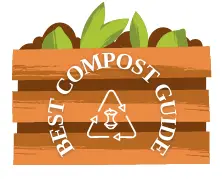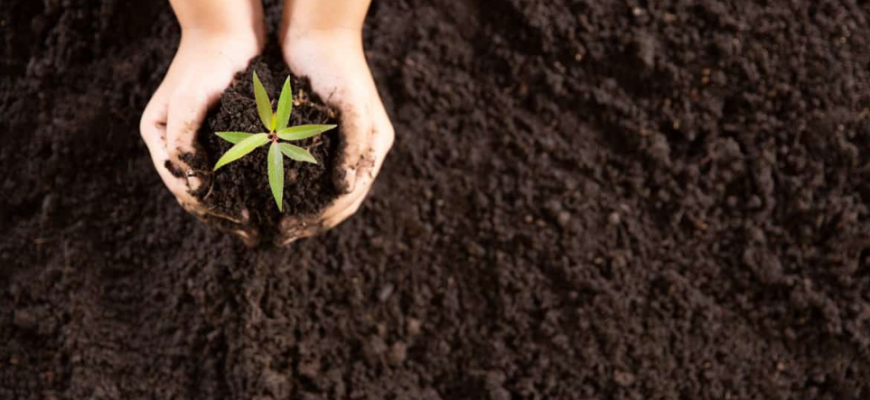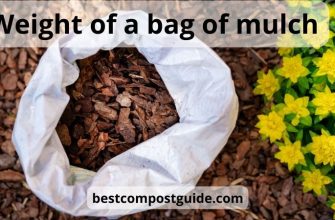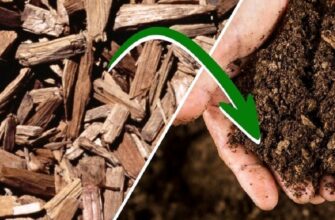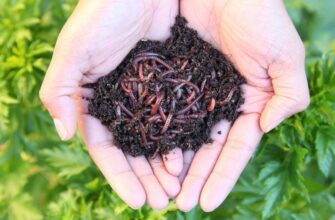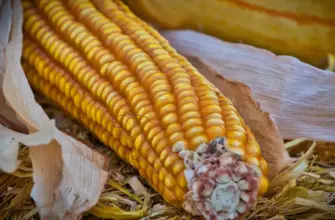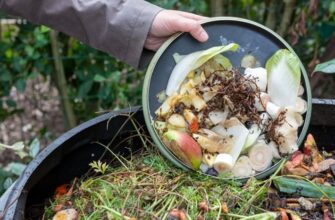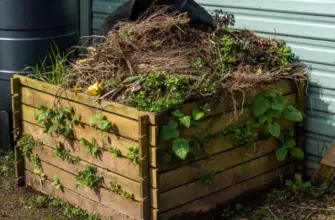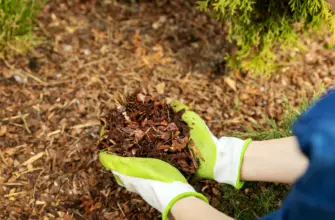The compost weight may vary depending on the soil structure and moisture levels. Gardeners buy nutritious elements to enrich the soil, but such compost looks like dirt and usually weighs in cubic yards.
Finished compost may consist of organic material and sand, clay, gravel, or larger boulders to be a natural fertilizer for vegetable gardens as each plant takes a lot of nutrients from the soil.
So, calculating the compost weight is difficult, a yard of compost weigh may be wet or dry, containing various microbes depending on the initial organic matter in it. For instance, dry leaves and twigs have much less weight than moistured manure-based compost.
Store-bought compost is produced in large quantities in bags and can be much better than homemade compost from your garden as your compost pile cannot contain the whole range of useful minerals, moreover, it doesn’t produce a sufficient volume for your backyard.
Commercial compost is characterized by varying moisture content. But bags should be packed whether wet or dry. Many compost retailers sell in volumes and are non-weight.
In this article, we give you hints to learn how much does a yard of compost weigh.
- What is compost and what materials are used?
- Benefits of composting
- How many cubic yards of compost will I need?
- The formula to determine how many yards of compost you need
- How much does a yard of compost weigh?
- A cubic yard of compost
- How much is a cubic meter?
- Dry and wet compost
- The difference between compost and topsoil?
- How many tons is a cubic yard of compost?
- How much does 1 yard of garden soil weigh?
- How much does a 5-gallon bucket of compost weigh?
- How many bags of compost does it take to make a yard?
- How much does manure compost weigh?
- Conclusion
What is compost and what materials are used?
Composting is a process in which you do not throw your household waste away, but recycle it at home, producing ecological nutrients.
You may use a compost bin to get the benefits of composting. Organic waste in a pile reaches a high enough temperature inside to kill weed seeds and decompose the organic material.
Decomposting takes time, and space, but have a lot of benefits such as shortening greenhouse gas emissions and reduce the usage of chemical fertilizers to improve the ecological situation in your garden. You also save money on garbage disposal, decrease public landfills and contribute to global warming prevention.
The standard method means keeping your organic matter in compost bins, and adding the proper ratio of ecological materials.
Compost is ready to be used when weed seeds and other organic material is decomposed.
Do not confuse mulch with compost. New gardeners do not know the difference. Compost is not mulch. Compost is a soil amendment.
Composting mass should consist of both green and brown materials. Brown matter is wood chips, sawdust, newspapers, dry leaves, plants, eggshells, or other matter made of wood. It works as carbon in a compost pile, providing aerobic action.
Otherwise, green materials provide nitrogen into compost. They are animal manure, food scraps, fresh leaves and plants, and grass clippings. Nitrogen-rich bacteria provide anaerobic action and moisture content in your organic compost.
That is how compost should be done to improve plant growth in gardens.
Benefits of composting
The decomposting process involves composting soils in a process of fertilization and soil amendment. Composts have high concentrations of essential nutrients to improve the ground structure and water retention.
Some people prefer to mix compost into the earth before planting. Or topsoil their plants all over the garden area with a layer of compost during the growing season.
That is why a yard of compost or several bags of compost may be extremely useful for the garden when you plant.

How many cubic yards of compost will I need?
That is a tricky question as it is usually measured in cubic yards.
Some gardeners know that very simple way to count the exact weight of compost you need. Measure the area you plan to spread with compost, and divide the length by the width. The number indicates the amount of square foot that is used for compost.
Then figure out the desired depth of compost will be. Most gardens usually prepare a minimum of 2 inches of compost. And vegetable gardens require 4 inches of compost per year, the same as flower bed gardens because they usually remove the plants from the garden each year and use more bags.
We believe 2 inches for flower gardens added before planting will be enough.
Vegetable gardens require more moisture and minerals from the soil in their ripening period.
So, let’s count to know how many giant cubic foot bags you need to be delivered to your house from garden centers in a dump truck, or maybe you take your pickup truck and bring one cubic foot yourself.
The formula to determine how many yards of compost you need
To calculate how many cubic yards of compost, or cubic foot you need, measure the area’s width, length, and depth in square feet. After that, multiply square feet (length x width) and desired depth by 2 -4 inches and multiply by 0.003 to convert the number into a cubic yard of compost weight.
The formula looks like this:
Square feet Xthe depthX 0.003= shows you the number of bags of compost you should buy for your soil.
Say your garden is 25 feet long and 20 feet wide. 25 X 20 = 500 Square Feet. Let’s add 2 inches of compost, so we multiply 500 X 2 = 1000. Now let’s multiply 1000 X 0.003 = 3 cu yd.
And now it is time to find out how many cubic foot bags of compost you need, as one cubic foot of compost weighs 46 lbs (21 kg). When dealing with one cubic foot bag, multiply the required cubic yards by 27 to get the number of compost bags you need for the garden.
How much does a yard of compost weigh?
It was mentioned above that it is one of the most difficult questions as depending on wetness the mass will differ.
A yard is a two-dimensional measurement, while a cubic one has a three-dimensional volume. A cubic yard is about 1250 lbs (567 kg).
A cubic yard of compost
A cubic yard of compost weighs between 1000-1600 pounds if it is without soil and mixed it’s heavier. A mix of compost with the ground will weigh 2200 to 2700 pounds.
The sand mixture weighs about 2200 pounds if it is dry compost. Wet compost weighs about 3 000 pounds or even 1 tonne depending on moisture content.
Sand is heavier than gravel when both are made of the same elements. Dry gravel is nearly 1500 kg, while dry sand is about 1600 kg per cubic meter.
How much is a cubic meter?
One cubic meter of compost is 956 lbs or 434 kg. A cubic meter looks surprisingly light and has a smaller volume in comparison to a cubic yard.
Dry and wet compost
Soil absorbs water, and humid dirt weighs more than dry dirt. A water gallon weighs about 8.3 pounds. A yard of compost can absorb up to 100 gallons of liquid to increase the mass up to 800 lbs.
The short answer to show the significant difference between dry and moisture compost is that dry has a mass of about 800 lbs, while very wet compost might weigh over 1,500 lbs.
This means a yard of wet topsoil weighs about 2900 lbs or even up to 3000 lbs or 1.5 tons per yard. And dry compost weighs 1250 lbs per yard.
Wet compost with sand or gravel will always have a heavier surface than dry.
When you prepare compost at home for your organic material, you may add brown materials such as wood chips or dry plants to improve airflow and facilitate better water drainage.

The difference between compost and topsoil?
They are both a by-product of degraded soil and an excellent supplement to your gardens thanks to their very high nutritional content.
Compost consists of organic materials broken into coarse textures, while topsoil is essentially dust mixed with organic matter. Top soil also serves as a filler for projects involving landscaping.
How many tons is a cubic yard of compost?
The weight of a cubic yard of compost is 1.35 tons, or 2. 970 lbs. This means there are 74 cubic yards of compost in 1 ton when it’s dry.
How much does 1 yard of garden soil weigh?
Answering how much does a yard of garden soil weighs, we keep in mind that one cubic yard is nearly 1250 lbs heavy.
How much does a 5-gallon bucket of compost weigh?
The standard 5-gallon bucket weighs 19 pounds. You may easily use a pickup truck and deliver in bags at home.
How many bags of compost does it take to make a yard?
The number of bags depends on how many yards you need for your plant kingdom. Multiply the required cubic yards by 27 to know how many bags you need in. In the same way, you can use it to count the bags of manure or mulch you need.
How much does manure compost weigh?
It depends on its wetness. Dry manure compost is about 1200 lbs weight in winter and 1800 lbs in summer.
Conclusion
The mass of compost depends on its elements and moisture and is measured in cubic yards. On average, it is about 1250 lbs or 567 kg heavy.
Read also: Can you compost pineapple, composting possibilities and useful compounds for your soil and plants
